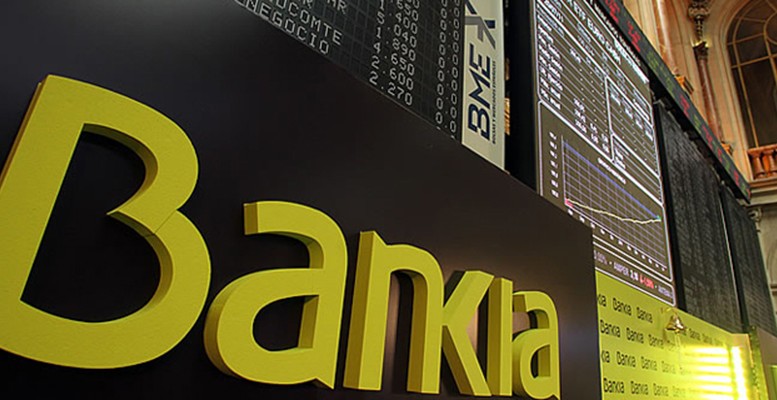Fernando Rodríguez | Bankia’s integration of BMN has transformed the stock in the eyes of analysts and fund managers: the restructuring period is over and now it’s time for growth. If the execution of the merger avoids the limited risks which it would seem to involve, the macroeconomic scenario in Spain, and interest rates on the rise in Europe, should favour the bank’s business and boost Bankia’s share price, which has already heated up of its own accord.
Absorbing BMN is as radical shift for Bankia, which has now gone from being in emergency state financial care to being in a more aggressive position, as its chairman José Ignacio Goirigolzarri explained when describing the transaction. And the market has welcomed the deal.
Nuria Álvarez, banking analyst at Renta 4, said that apart from significantly increasing the size of the bank and its client base – the merger will reinforce its position as the fourth largest bank in Spain – it offers opportunities “to improve efficiency in terms of commercial management and prices.” Álvarez also flagged the fact that the execution of the transaction “is low risk” and that the new merged entity “will continue to be the bank with the least exposure to developer loans within the sector, just 1.5% of total assets.”
After revising the big figures related to the operation, Link Securities’ analysts concluded “we would describe the acquisition of BMN as positive for Bankia.” Kepler Chevreux analysts agreed the final terms of the deal “have been better than expected,” and that it’s “good for shareholders”. And Carax Alpha Value analysts promised to adjust their valuation for the stock, considering that “the move will strengthen its regional strategy, boosting its profitability to slightly over cost of capital, slightly higher than the sector average (5.2% ROCE).” At the same time, these analysts think “maintaining the dividend policy is positive.” They also highlighted that, after the acquisition, “the FROB has a 66.6% stake,” which doesn’t rule out the state-owned institution ” from making a share placement this year.” Citi was also positive about the deal and the fact the dividend pay-out will remain intact at 40%. However in its report on the merger, Citi assured that, as Bankia’s management team would have said in the conference call with analysts, the dividend “could rise in the future.”
Ignacio Perea, new head of Investment at Tressis, believes the operation “makes complete strategic sense. We have gone from a story of restructuring and excess capital and now value is being attributed to this money. It’s a good investment story because of the potential for development it offers Bankia. The lender has been very professionally managed – including the fact the management team was given an already restructured bank – and the numbers support this. Apart from that, it will be much simpler for the FROB to manage one bank as opposed to two.”
Gonzalo Sánchez-Crespo, banking expert at asset management firm Gesconsult, flags the fact that “the enormous excess of capital which Bankia was going to have to return to shareholders is now being invested to grow its business more in the future, in a much better environment than a year ago. We are in a first phase of normalisation of interest rates and we are beginning to see a second phase of normalisation in terms of business volumes, with increases in corporate lending for the first time and mortgages with better conditions”.
The impact on the analysis of this upwards potential originating from the economic outlook and the trend in interest rates is precisely what is fuelling a big difference in analysts’ recommendations and valuations.
Inversis’ head of investment believe that if the forecasts for the transaction are met, Bankia “can easily reach…an initial level of 4,80 euros,” per share. Bankinter has a Buy recommendation on the stock, with a target price of 5 euros per share. Kepler Chevreux has a Sell stance at 3,70 euros per share.
Norbolsa also has a Sell recommendation on the stock: “After including the forecasts for BMN, we have raised our target price to 4,0 euros per share (vs 3,76 euros at 5/6/2017). The integration of BMN means Bankia will gain critical mass, but it doesn’t improve the lender’s lower differentials compared with its peers. It will be crucial to see its capacity for obtaining synergies in revenues. We recommend to sell
Citi is Neutral, with a target price of 4,48 euros –“the potential rise in the stock price on the back of the deal has already been discounted since the FROB made it public.





